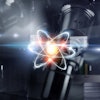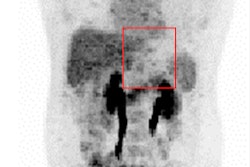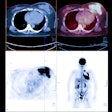Dear Molecular Imaging Insider,
PET takes center stage in this issue of the Insider, beginning with a study that combined PET with the radiotracer florbetaben to detect amyloid deposits in the brain.
Amyloid has been linked to the onset of dementia and Alzheimer's disease, but the use of PET to find the problematic protein so far has been confined to the research setting. In a prospective study from VU University Medical Center in Amsterdam, researchers used the modality on a variety of subjects, ranging from people with confirmed cognitive impairment to those with no dementia at all.
By discovering the presence of amyloid in both sets of subjects, the researchers hope to provide a "bridge between validating amyloid PET in a research setting and implementing this diagnostic tool in daily clinical practice," they wrote. All of the details are in our Insider Exclusive.
In other news, the ability to detect cancerous gastrointestinal and pancreatic neuroendocrine tumors soon might get a boost from a radiolabeled PET tracer that is better able to detect and bind to tumors. Swiss and German researchers have developed a somatostatin receptor subtype 2 antagonist to help eradicate the cancer.
PET scans could also help clinicians alter treatment strategy if chemotherapy for esophageal cancer is not effective. The modality identified patients who did or did not respond to induction chemotherapy, which prompted clinicians to change their treatment course, greatly improving patient outcomes.
In addition, researchers from the University of California, Los Angeles are reporting early success with a new PET tracer that identified areas of inflammation in the colon in mice. There is hope that the radiopharmaceutical probe eventually could improve the visualization and diagnosis of inflammatory bowel disease in humans.
Unfortunately, the news is not all good on the PET front. Despite numerous studies and years of research into the benefits of PET imaging with sodium fluoride for cancer patients with bone metastases, the U.S. Centers for Medicare and Medicaid Services (CMS) again rejected reimbursement coverage. CMS' denial follows almost a decade of data collection and outcome evaluation by the now-shuttered National Oncologic PET Registry.
Be sure to stay in touch with the Molecular Imaging Community for daily coverage of the Society of Nuclear Medicine and Molecular Imaging annual meeting from Philadelphia, beginning June 23.




















